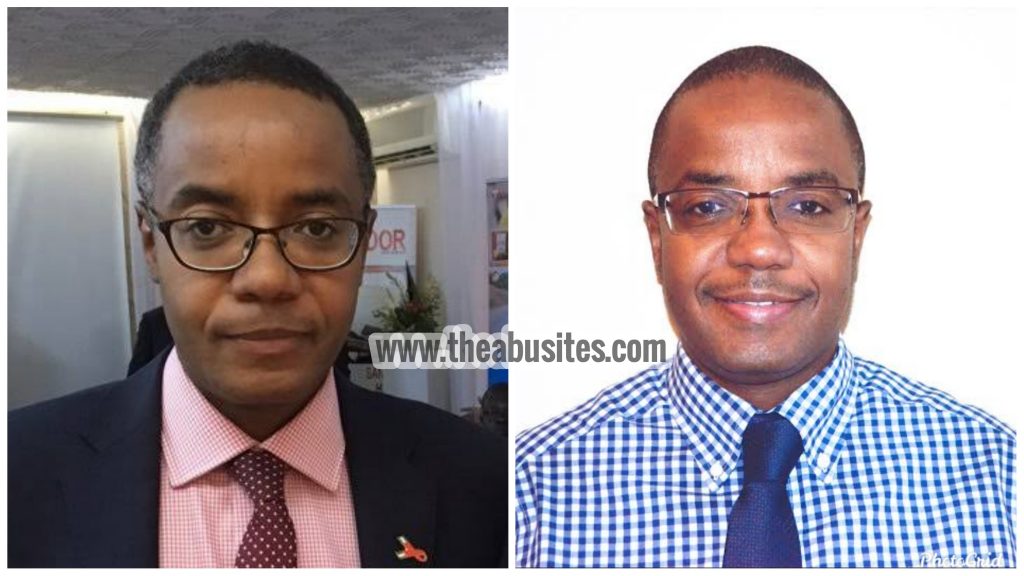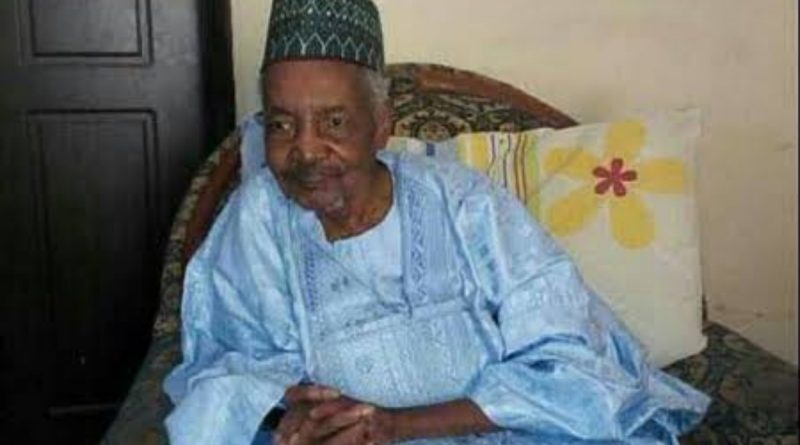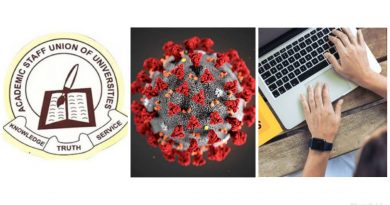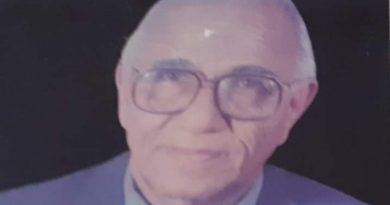Tribute to A Generational Icon: Alhaji Aliyu Daneji, OON (1926-2020)
By Muktar and Sani Aliyu
How do you begin to write a memorial for a parent who still lingers in your every thought? When my twin brother Sani suggested that we write this tribute to our departed father (Alhaji Aliyu Daneji), I was initially hesitant for several reasons.
For one, I have not seen Baba for a year and my inability to travel home due to the global lockdown made this one of the most difficult personal losses I have had to deal with. Second, I was not sure if Baba would approve of this, anyway. He was not one to seek the limelight at all.
Baba was born in Daneji, Kano city in 1926, the year that Abdullahi Bayero (grandfather of the current Emir) ascended to the throne. He was the only child of his mother Aisha, the eldest daughter of Makaman Kano Aminu, District Head of Wudil and one of Kano’s four traditional kingmakers. His father, Ahmadu dan Falaki was a clerk in the Emir’s palace.

He was raised by his siblings Mustapha and Ibrahim, who enrolled him in Shahuchi Elementary School at a rather late age – possibly in his early teens.
From Shahuchi Elementary School he moved to Kano Middle School, where his schoolmates included the late Barden Kano Kabiru Bayero and Sayyadi Ringim, the current Emir of Ringim. Baba excelled in middle school and was selected among transfer students to Barewa College (at that time Kaduna College) in 1947.
Upon graduation from Barewa College, Baba returned to Kano to join the then Kano Native Authority (N.A.), working in the office of the Wakilin Gabas with people like late Yahaya Gusau and Baba Daradara.
It was from the Kano N.A. that he was selected by the late Inuwa Wada (Minister of Lagos Affairs and later Defense under Balewa) to join him in Lagos as his personal assistant and secretary.
He was in Lagos when the opportunity to further his studies came up. He attended the Institute of Administration (I.A.R) course at the newly established Ahmadu Bello University in 1960 with classmates like former Chief Justice Mohammed Uwais.
After the I.A.R course, he was posted to the then Ilorin province as Assistant District Officer. This was to be the first of several colonial-era civil service postings that would include Nasarawa, Niger, Plateau and Benue provinces.
ALSO READ: Meet Dr Sani Aliyu – The National Coordinator, Task Force for the Control of COVID–19
In between these postings, he went to Oxford University in the UK for a crash course in public administration with the late Isa Gambo-Dutse (former Secretary to the Kano State Government) and late Maccido Dalhatu (former minister in the Abacha government), among others.
On his return to Nigeria, he worked in various parts of Benue, Plateau, and Ilorin provinces. It was while he was in Jos as senior District Officer (D.O.) in 1967 that Kano state was created. The newly appointed military Governor of Kano, Audu Bako (who had worked with him in Jos) asked him to transfer his services to the newly created state.
He moved to Kano as deputy permanent secretary before being elevated to the newly created Ministry of Economic Planning, Trade, and Industry as the pioneer permanent secretary, with Aminu Dantata as Commissioner.
He was later moved to the Ministry of Finance in 1972 where he would work under then commissioner, Tanko Yakasai until 1975, when the Gowon administration was overthrown.
Among his peers in the state civil service at the time were pioneers like late Zakari Mohammed, first attorney-general of Kano State, late Emir of Kazaure Hussaini Adamu, Salihi Iliyasu, first engineer from Kano, MT Waziri, pioneer architect, Muktar Dan Amu and Sani Aikawa, Kano’s first solicitor-general and later Supreme Court justice. His close friend was late Abdu Sambo, Governor Audu Bako’s then chief of protocol.
We were only 5 years old when Murtala Mohammed came to power. Baba and some of his colleagues were suspended and probed by the new military administration. He was later acquitted of any wrongdoing but retired from the civil service. Even though we were young, we could sense that things had changed.
The stress of the probe and our change in circumstances were obvious. We left the G.R.A. and moved to a new home at Sabuwar Kofa, close to the city gate. To Baba’s credit, he never withdrew the seven of us then from private school. It was a testimony to his willingness to sacrifice for family and his belief in the value of good education.
Baba would later on join his friend and colleague, Aminu Dantata to run a successful business with several subsidiary companies under their umbrella, including Mentholatum Nigeria, Raleigh Industries, I.C.A. Nigeria, Universal Textiles and Universal Spinners, among others.
In addition, he served on the board of the Northern Nigeria Development Company (NNDC) and was chairman of Tropical Commercial Bank and the Kano Foundation.
Baba retired from formal “work” in 1993, the year that my twin brother and I graduated from medical school. He was immensely proud of the national honor of Officer of the Order of the Niger given to him by President Obasanjo in 2000.
So, what type of father was Baba? He was the parent who modelled behaviour for all his 21 children. He was a voracious reader and knew something about almost any topic you brought up. He had a weird choice in music – he listened to Mamman Shata, Dankwairo and Jim Reeves.
He was strict, yet capable of considerable empathy. Whenever any of us was sick, he would become visibly worried. He took us to school on the first day of every new school (yes, including university).
He carried himself with dignity and had considerable self-discipline – he smoked for many years but quit when one of my brothers momentarily hesitated to purchase a box of his favorite Benson & Hedges.
He never finished a plate of food, probably because of his longstanding diabetes. He loved cars and until he stopped driving in his eighties, he would drive 20 kilometers every evening to his farm at Zogarawa and hang out with his employees. During Sallah festivals, he would take us on a boat ride to Tiga Dam.
Baba was somewhat of a loner. Yet, for all the years when we were growing up, he never ate lunch alone. There was always someone visiting at lunchtime. He had a very wide circle of friends throughout Nigeria. He liked people who were unpretentious – he admired late IGP Adamu Suleiman for his austere lifestyle.
ALSO READ: Tribute to Professor Aliyu Dikko Umar by Dr. Aliyu Tilde
He loved family and doted on his grandchildren. He was enormously proud of his children’s accomplishments and somewhat disappointed when several of us relocated abroad.
He was generous, always giving gifts to extended family, friends and community members who came with their problems. He particularly liked his sons-in-law who were married to his daughters – Yaya Aminu, late Shehu Karaye and Sarki Abba could never do wrong.
Kano has lost a member of the pioneer generation who laid a solid foundation for the state and our nation. Allah ya rahamshe ka, Baba.
Dr. Muktar Aliyu is a Professor of Medicine with the Vanderbilt University School of Medicine, USA. Dr. Sani Aliyu is the national coordinator of Nigeria’s Presidential Task Force on COVID-19.
For Advert Placement, Sponsorship, support, Article submission, suggestion, etc, Contact us: info@theabusites.com, +2349015751816 (WhatsApp)








